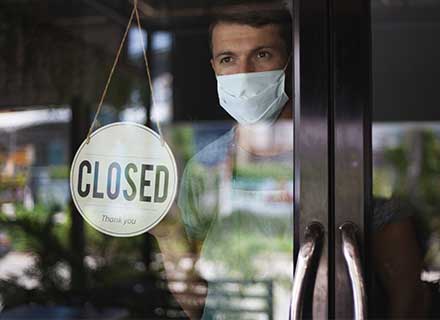In the UK, due to a lack of staffers and the rising cost of living, which has driven customers to reduce their spending, the number of restaurants going out of business has risen by more than 60% in the previous year.
1,406 restaurants in the UK shut shops in the 12 months to May, up 64% from the previous year, revealed new data from the accountancy firm UHY Hacker Young.
That represents a higher percentage increase in closures than the overall hospitality sector, which experienced a 56% spike in insolvencies during the same time period.
Byron, Gourmet Burger Kitchen, and the Italian chains Strada and Carluccio’s were some of the high-profile restaurants that were forced to close down many of their outlets during the peak of the COVID pandemic as a result of the heavy financial losses they incurred during the multiple lockdowns and other coronavirus restrictions.
Peter Kubik, a partner at UHY Hacker Young, said, “Pressure is rising on the restaurant sector every day. More and more of them are shutting their doors as a consequence. Restaurants that only just managed to survive the pandemic thanks to government support are now facing fresh challenges in the form of rising inflation, a post-Brexit labour shortage, and consumers who simply cannot afford to spend as much.”
The top 100 restaurant groups were forced to go through significant restructuring programmes during the COVID pandemic when they were forced to rely on state support packages that included business rates holidays, and furlough payments for staff. According to research released in June by UHY, losses at these restaurant groups had increased to more than £800 million in the previous six months.
Due to the soaring prices, from gas and electricity to food and clothes, businesses across the United Kingdom have been dealing with a slowdown in spending by the consumer.
With household income being exhausted at a rate not seen since modern records first began in 2001, inflation, which was fueled in part by the war in Ukraine, reached a 40-year high of 9.4% in June.
The anticipated increase in the annual energy price cap from under £2,000 to over £3,000 in October also poses additional concerns.
Analysts are warning that inflation could rise as high as 12% by October, putting households under further financial strain and forcing people to cut out extra costs, including eating out.
By October, analysts predict that inflation may reach a peak of 12%, further straining household budgets and causing consumers to cut back on additional expenses like eating out.

